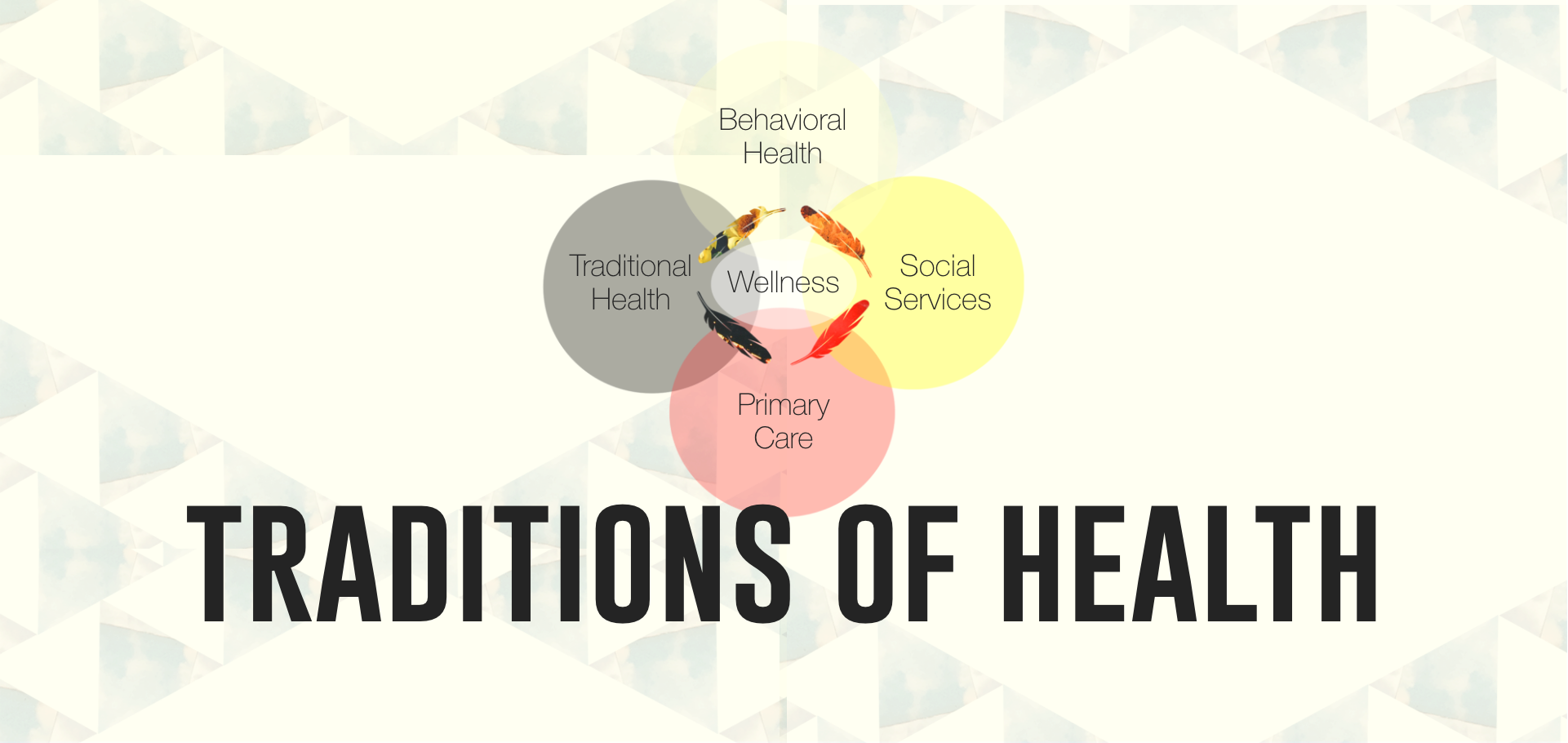
About the Project
The California Consortium for Urban Indian Health’s Traditions of Health project aims to improve the integration of behavioral health and primary care for Urban Indians by advancing the cultural revitalization efforts of Urban Indian Health Organizations (UIHO) in California.
This project convened key stakeholders to advance policy reform and sustainability planning, and worked to develop culturally specific, integrated systems of wellness for Urban Indians.
Culturally Relevant
Integration Model
CCUIH developed the Culturally Relevant Integration Model to empower UIHOs to return to integrated wellness practices. This model is the result of one year of planning, informed by our Traditional Health Taskforce, Behavioral Health Peer Network, and Traditional Healers Advisory Committee along with key stakeholder interviews.
The Culturally Relevant Integration Model is a tool that UIHOs can use to implement integration approaches to address the organizational changes required to meet the holistic needs of the people they serve. This model is designed to strengthen the use of American Indian cultural practices within systems of care to increase access to traditional knowledge and to ensure that wellness practices remain community-centered and culturally relevant through this time of healthcare reform and for generations to come.
Click the image to view the Culturally Relevant Integration Model.
Model Presentation
CCUIH created a two part Prezi presentation about Traditions of Health. To watch: press the center button to load, and then the play button in the left hand corner so that the presentations can play in their entirety.
Policy Change Strategy
& Sustainability Plan
The goal of the Traditions of Health Policy Change Strategy & Sustainability Plan is to transform policies and systems to incorporate and sustain Traditional Healing services into health and social systems serving American Indians in California.
CCUIH wrote the Policy Change Strategy & Sustainability Plan as an accompanying document to the Culturally Relevant Integration Model. This Strategy & Plan aims to promote and transform health systems to meet the funding necessary to implement and sustain the Model. It will be necessary to read both documents to understand the complementary approach to achieve goals.
The Policy Change Strategy and Sustainability Plan was informed by CCUIH’s Traditional Health Taskforce, Behavioral Health Peer Network, and Traditional Healer Advisory Committee. Additional ideas and recommendations were collected through participation in relevant conferences, stakeholder meetings, and pointed interviews.
Culturally Adapted
Integration Tool
As part of our Traditions of Health Project, CCUIH adapted SAMHSA’s Six Levels of Integration Tool to incorporate cultural perspectives and introduce traditional healing into primary care and behavioral health integration.
View the full page here.
